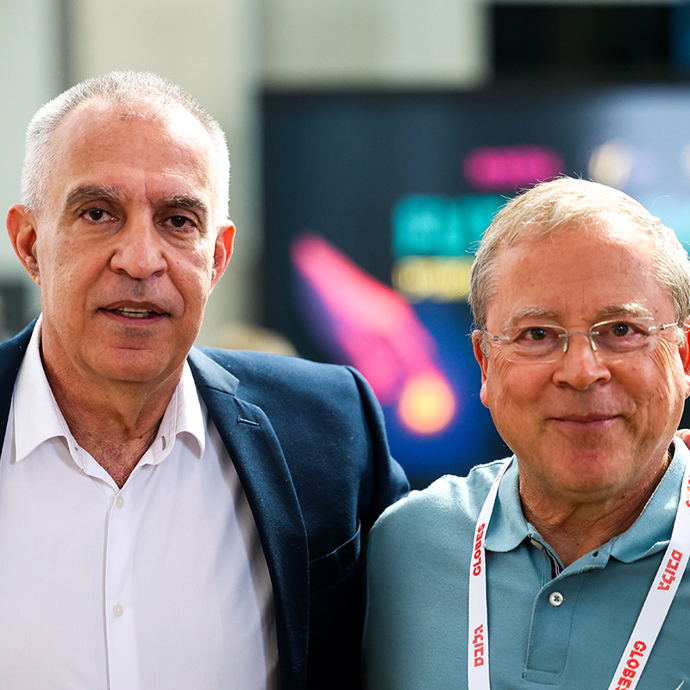
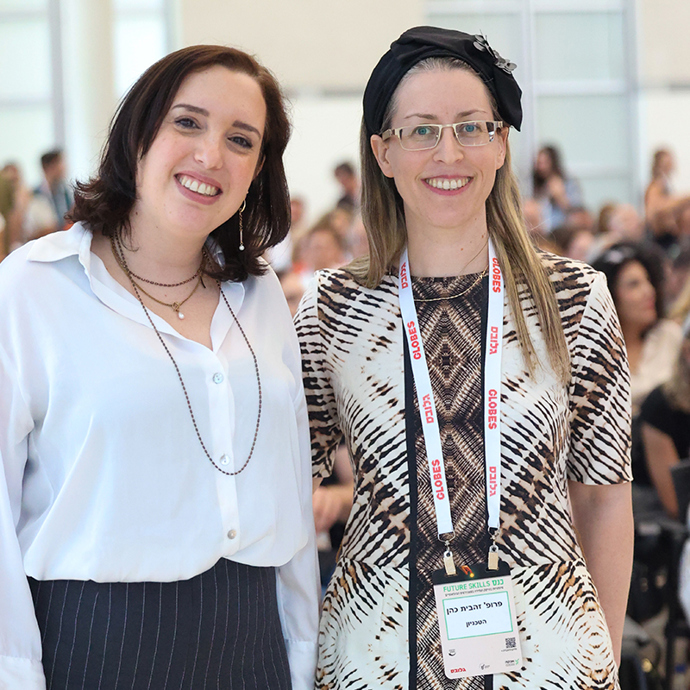
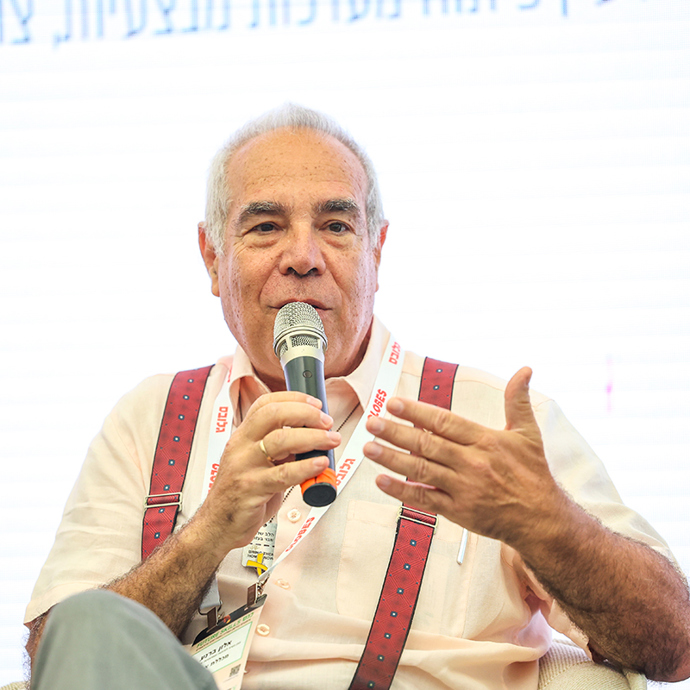
Hundreds of participants gathered at Yitzhak Rabin Center for Afeka’s Future Skills conference, in collaboration with Globes and the Trump Foundation – an event that brought together opinion leaders, heads of industry and education, and key figures from the worlds of technology, economy, and policy.
Participants included influential Israeli and international figures: Prof. Ami Moyal, outgoing president of Afeka and incoming chairman of the Planning and Budgeting Committee (PBC); Prof. Leo Leiderman, chief economic advisor at Bank Hapoalim; Boaz Levy, CEO of Israel Aerospace Industries; Merav Zarbiv, director of the Innovation and Technology Administration at the Ministry of Education; Eli Hurvitz, executive director of the Trump Foundation; Dr. Tomer Simon, chief scientist at Microsoft Israel; and a special delegate from Japan, Norihisa (Nori) Wada, chairman of Japan’s EdTech Acceleration Committee.
A full day of lectures and panels provided a contemporary, in-depth picture of the future job market, highlighting the need for systemic change in training and education, with an emphasis on artificial intelligence as a key driver of change.
Initiated by Afeka, the conference is continuing an eight-year tradition of systematically developing human capital in engineering: focused, relevant, and future-facing.
Survey: Personal Skills Outweigh Academic Degrees
The conference opened with the results of a special survey, conducted by Afeka especially for the conference in July 2025 among 135 high tech managers and 183 managers from multiple fields. The survey’s key takeaways were:
- About half of the respondents agreed that an academic degree best prepares students for the job market in the short term, but only 27% believe in the degree’s contribution ten years from now.
- In order to better prepare for the future job market, academia must place stronger emphasis on practical training and a closer relationship with the industry.
- The importance of an academic degree as a factor in high tech staffing has increased compared to previous years.
- Most high tech managers believe that STEM (science, technology, engineering, mathematics) subjects better prepare students for the job market.
- Previous experience, personal skills, and a relevant academic degree are valued higher by high tech managers as compared to the other managers.
Prof. Ami Moyal: “The academic degree must provide knowledge as well as skills and practical training”
The conference opened with president of Afeka, Prof. Ami Moyal, who began by explaining the Afeka Framework – the comprehensive initiative he has led as president of Afeka, for the fundamental transformation of engineering education.
“We profoundly reformed the process of engineer education, changing the entire curriculum, and the main thing we did was to define specific skills and incorporate them as learning outcomes in the courses,” he explained.
Prof. Moyal stressed the key insight that promoting skill acquisition isn’t relevant only to educating engineers, but to all STEM subjects, every academic degree, and the education system as a whole. Additionally, he commended the decision to establish a national STEM education council – which to him is a dream come true.
Regarding the survey presented at the conference, Prof. Moyal stated a clear worldview: “Today’s industry executives are examining whether an academic degree or practical experience or skills are required. My view is simple: The academic degree must provide knowledge as well as skills and hands-on training. Once this happens, one hundred percent of managers will say that an academic degree is necessary.”
According to Prof. Moyal, AI has had massive influence that only adds to the importance of skills. He says that the advent of AI highlights the need, first and foremost, for critical skills and creative thinking.
He concluded by stating: “I dream of an educational continuum coordinated among the education system, military, academia, and job market. Let us define together what critical thinking means, and build a continuum where each stage delivers a certain level. This is not a pipe dream – but a national necessity.”
Moved, Prof. Moyal finished on a personal note: “This Thursday, I will complete a full decade as president of Afeka, and on Sunday I will begin my role as chairman of the Planning and Budgeting Committee (PBC). In me you will find a determined and committed partner for promoting higher education and transforming the educational continuum in Israel.”
Eli Hurvitz, executive director of the Trump Foundation for Excellence, stated that only 8-10% of Israeli students manage to cope with PISA tests. “Nothing in the Israeli education system prepares most students for these tests,” he claimed.
Hurvitz noted that countries such as Japan and the Netherlands responded to the shock of low PISA outcomes with deep educational reforms, while Israel, together with Romania, is among the few countries that are still wavering.
According to him, an age where AI will solve PISA tests better than humans begs the question: What do our children need to learn today in order to be relevant in 2040?
Prof. Leo Leiderman: “AI is not simply a tool, but a fourth industrial revolution, and we cannot afford to sit it out.”
Prof. Leiderman opened with his personal dream, that one day Israel will have a forward-looking national strategy. According to him, the world has transitioned from an era of globalization to one of de-globalization, trade wars, populism, and mounting uncertainty. In this reality, AI isn’t just another tech trend, but an industrial revolution of historical proportions, much like steam, electricity, and the Internet before it.
Prof. Leiderman stressed that Israel, as the “start-up nation”, is at an excellent starting position, but that a national AI integration plan is needed that also includes smaller sectors and the geographic periphery – not just big companies and the Israeli center.
According to him, in addition to AI’s opportunities, there is genuine anxiety among workers and managers who fear job loss. But history shows that every technological revolution ultimately generates more employment than unemployment, the key being to invest in retraining for future skills and innovation.
Leiderman calls on the education system to wake up: To transition from knowledge to skill acquisition, introduce AI literacy from a young age, and speak openly with students about a changing world. “Today’s children are more sophisticated than their teachers, and we must update the teaching methods.”
Boaz Levy, CEO of Israel Aerospace Industries: “An embargo is no blessing, but every time limitations were imposed on us, we came out stronger.”
Boaz Levy, CEO of Israel Aerospace Industries, presented a lucid and incisive worldview when it comes to engineer training, collaboration with academia, and future defense challenges. Even in an age of advanced technology and AI, he said, “the most important tools for engineers are the ability to learn in action, understand reality, and make complex decisions.” Levy addressed the issue of AI, and whether it can be considered the be-all and end-all, by saying: “I can’t imagine an answer from Chat GPT that would help me manage 15,000 workers in the midst of a missile attack.”
“AI is already here – and those who fail to adapt the education system will be left behind”
Merav Zarbiv, director of the Innovation and Technology Administration at the Ministry of Education, recounted how she had founded the ministry’s Research and Development section a decade ago, and had been quick to identify AI’s potential and threat for the education system.
“The age of AI is the most significant challenge facing education, a sea change that’s taking place as we speak in almost every classroom in Israel.”
“There is no reason why twice as many boys as girls should choose physics tracks. It’s a matter of resilience, self-image, and future image. We all – parents, teachers, counselors – must fundamentally change this.”
The Japanese Lesson: Agility in the Face of Challenges
Norihisa (Nori) Wada, chairman of Japan’s EdTech Acceleration Committee, provided the conference with a rare glimpse into the Japanese education system and its handling of national crises. “Every crisis is also an opportunity for systemic change,” he said, highlighting the need for education that nurtures self-efficacy and self-learning skills: “AI learns from failures. Japanese students are afraid to fail, but in the future, this will in fact be the way to succeed.” Wada concluded optimistically, while posing a challenge: “We must equip the next generation not only with knowledge, but with the skills, boldness, and ability to cope with a rapidly-changing world.”
How to Train the Next Generation?
Attempting to answer this question were panel members Dr. Maya Gordin, director of the Technological Education Department at the Ministry of Education, Colonel Rotem Bashi, commander of the IDF’s C4I directorate’s Mazpen unit, Prof. Zehavit Kohen from the Technion’s Education in Science and Technology faculty, and Alon Barnea, VP of development and strategic alliances at Afeka College.
The speakers highlighted the importance of being able to learn and adapt, the role of resilience and curiosity, and the critical links between education, academia, military, and industry.
Alon Barnea summarized: “Academia doesn’t train junior engineers: it trains engineers for 40-year careers.”
“Every Worker is a Manager”: Microsoft’s Chief Scientist on AI Proficiencies
Dr. Tomer Simon, chief scientist at Microsoft Israel, sounded a warning about the widening gap between rapid job market changes and the education system.
“Suddenly we have digital colleagues – we’re already working with teams of 6, 7, and 8 digital agents,” said Simon. He emphasized that the key lies in “friction”, in direct experience: “Ongoing daily use of AI models. This is not only for engineers, but for every role in the organization.”
Managers, he says, will be able to switch “from day-to-day management to strategic management, with the agents handling micro-tactical aspects.”
Simon said that although AI certainly won’t replace workers, it will compel everyone to change, relearn, and manage a different type of team.
Panel: AI’s Effect on the World of Skills – How do Tech Companies Define the Next Generation?
The conference concluded with a fascinating panel, featuring senior HR representatives from Israel’s leading tech companies, who discussed the major changes affecting the recruitment, development, and training world due to the rise of AI.
The Panel included Eliad Weisberg, global VP HR at Fiverr; Sigal Gill More, VP HR at Check Point; and Roni Lichtenstein Shany, VP HR at One Zero Bank.
Eliad Weisberg said: “We don’t intend to replace workers with AI; we do require and are required to be more efficient. We expect and demand to do what AI cannot do.”
Sigal Gill More mentioned that just a short while ago the use of AI in hiring exams was highly contested, while today’s companies actively seek candidates who can utilize these tools. She highlighted the difficulty of assessing AI skills during recruitment, and the importance of being able to organize and formulate sophisticated prompts – in addition to such skills as curiosity, self-learning, and self-management. Furthermore, she stressed that today, every employee is required to adopt AI tools in their daily work. According to her, AI frees workers to spend more time on complex tasks and improves organizational efficiency.
Roni Lichtenstein Shany pointed out the visible effects of using AI tools within the organization: In addition to resource efficiency and lower recruiting, new jobs arose that never existed before, such as AI experts and designated code reviewers. Additionally, she stressed that while certain jobs now require fewer workers, AI does not replace workers but allows them to focus on higher-value tasks.
The panel also discussed the challenges facing junior engineers in a changing job market. The speakers agreed that this is an interim period which requires twice the responsibility to train new candidates – who must arrive with both the personal technological skills, and the will and ability to learn and adapt.
The panel ended by reiterating the need for STEM subjects as a strong foundation for the future, along with a call to choose subjects that provide passion and self-realization, while understanding that combining scientific and technological knowledge with soft skills is what will guide the next generation of workers.
The Future Skills conference perfectly exemplified the guiding principles behind the Afeka Framework: The combination of theoretical knowledge, practical abilities, and soft skills forms the basis for training the next generation – and these skills are all key to success in a rapidly-changing job market, especially in the age of AI.
ILTV Story
Conference Photos
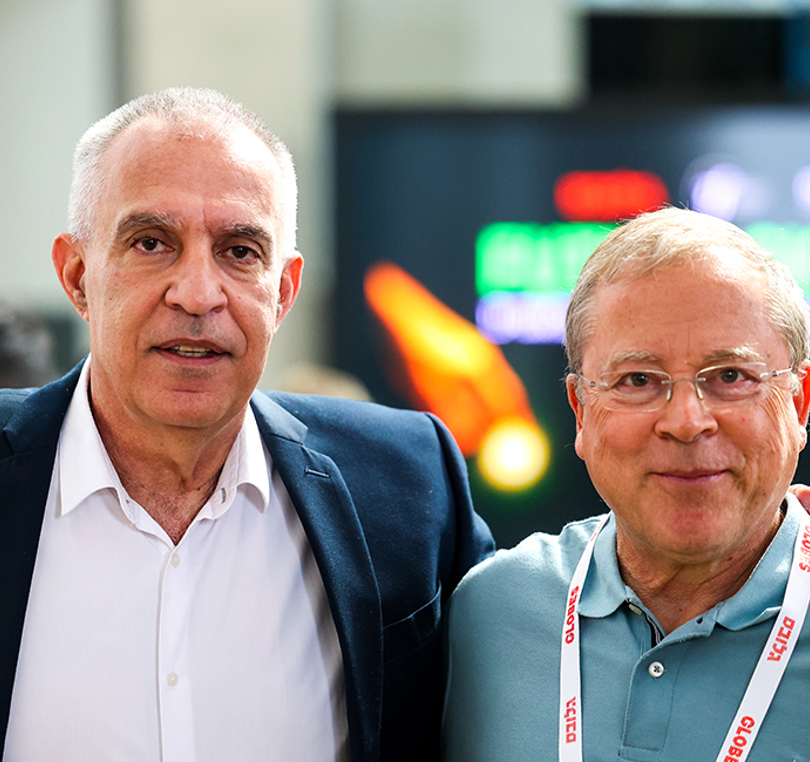
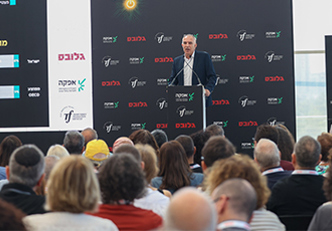
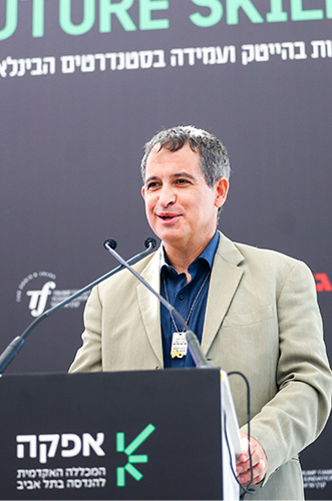
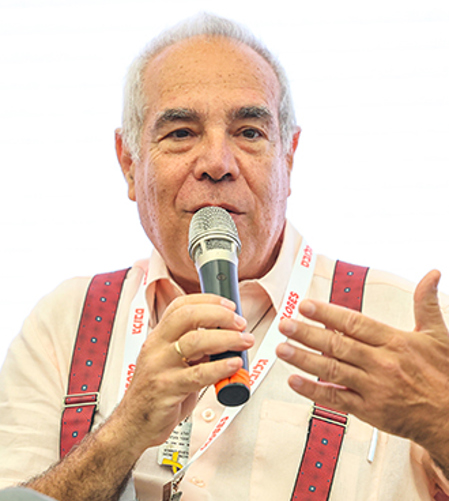
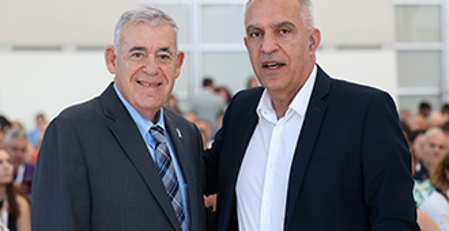
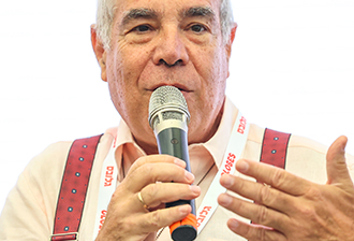


Future Skills Conference 2025
Share a link using:
https://external.afeka.ac.il/en/afeka-news/magazine/future-skills-conference-2025/WhatsApp
Facebook
Twitter
Email
https://external.afeka.ac.il/en/afeka-news/magazine/future-skills-conference-2025/